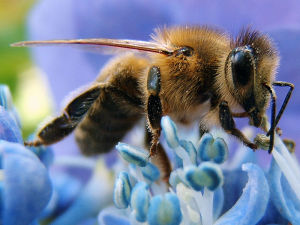BASF Files Suit Challenging EU Fipronil Ban

BASF says the restriction of fipronil will not contribute to protecting bees.
Credit: Ricks at de.wikipedia
Creative Commons license
BASF said it filed legal action with the General Court of the European Union challenging the EU Commission’s decision to restrict major seed treatment uses of the insecticide fipronil in the EU.
The company said it remains convinced that the decline of the bee population is caused by “multiple and complex factors” and that the ban of fipronil uses will not contribute to protecting bees.
BASF said it believes the EU Commission’s decision to restrict specific fipronil uses is the result of a disproportionate application of the precautionary principle: “In reaching its decision, the EU Commission did not rely on the entire scientific evidence available and also breached EU pesticide legislation.”
The Commission voted to restrict European farmers from using fipronil on maize and sunflower from Dec. 31, 2013, while treated seeds can be sown up until Feb. 28, 2014.
“Prior to the decision, we reached out to the EU Commission, but unfortunately our valid scientific studies and evidence were not properly taken into account,” said Dr. Jürgen Oldeweme, Senior Vice President, Global Product Safety and Regulatory Affairs, BASF Crop Protection. “This is why we have taken this step. Fipronil is an important technology in modern agriculture that growers count on,” he added.
According to the company, BASF supports research projects investigating the causes related to the decline of bee health and aims at improving the quality of the habitat for bees, insects, and other wildlife species. It is also developing new products to control bee pests, pathogens and diseases. Currently, the company is engaged in bringing to European markets Mite Away-brand Quick Strips, a product that controls the Varroa destructor mite in beehives – a mite that has been proven to pose serious harm to health.
“We will continue with our efforts to ensure our technologies can protect the environment and support modern farming in Europe. Agriculture cannot exist without bees, our main pollinators. We must engage in a comprehensive action plan with all stakeholders involved to address the real root causes of the decline in bee health,” Oldeweme said.
The ban follows a scientific risk assessment carried out by the EU’s watchdog agency, the European Food Safety Authority, published in May. It concluded that fipronil “poses a high acute risk” to Europe’s honey bee population when used as a seed treatment for maize.
Source: BASF






